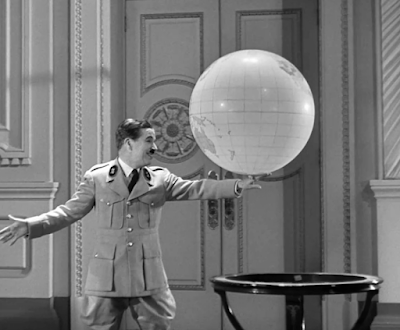The issue of secession has been present in American history since the Declaration of Independence—itself an act of secession followed by a war for independence! The debate continued, involving discussions of National versus Compact Theory, the nature of the Union, the true vision of the Founders, under what circumstances secession might be legitimate, how a territory could theoretically secede, etc. All these things were discussed before, during, after the Civil War.
The aim of this article, however, is to catalog a few notable quotes regarding secession from William Rawle in his A View of the Constitution of the United States of America (1825). Rawle and his views on secession have been discussed in other works on the topic of secession, even providing extended quotes, yet this article aims mainly to display the quotes themselves in order to make them more accessible, then to provide a few limited comments.
William Rawle—Abolitionist and Lawyer
William Rawle was the founder and president of the Pennsylvania Abolition Society, so an ardent opponent of slavery. Rawle was an accomplished lawyer and, in 1791, George Washington appointed him to the attorney general of Pennsylvania. His View of the Constitution was widely read and may have even become a textbook at West Point (1825-1840) (though this is the subject of some debate). If this is the case, it was studied by many Americans and even by West Point graduates who became future military and political leaders of the United States and the Confederacy, including Robert E. Lee (1829), Thomas “Stonewall” Jackson (1846), Jefferson Davis (1828), George McClellan (1846), William T. Sherman (1840), Philip Sheridan (1853), and Ulysses S. Grant (1843). He was also, in his book, one of the first legal authors to clearly argue a legal right of secession of American states.
What did this widely-read Northern abolitionist—possibly read by the military leadership of the Civil War—argue concerning state secession? Here is a sample of some of his relevant quotes regarding secession:
Yet it is not to be understood, that its [the federal government’s] interposition [to repress domestic violence in a State] would be justifiable, if the people of a state should determine to retire from the Union, whether they adopted another or retained the same form of government, of if they should, with the express intention of seceding, expunge the representative system from their code, and thereby incapacitate themselves from concurring according to the mode now prescribed, in the choice of certain public officers of the United States. (p. 192, emphasis added)
It depends on the state itself to retain or abolish the principle of representation, because it depends on itself whether it will continue a member of the Union. To deny this right would be inconsistent with the principle on which all our political systems are founded, which is, that the people have in all cases, a right to determine how they will be governed. (p. 192, emphasis added)
The states, then, may wholly withdraw from the Union, but while they continue, they must retain the character of representative republics. (p. 192, emphasis added)
If the majority of the people of a state deliberately and peaceably resolve to relinquish the republican form of government, they cease to be members of the Union. If a faction, an inferior number, make such an effort, and endeavour to enforce it by violence, the case provided for will have arisen, and the Union is bound to employ its power to prevent it. (pp. 193-194)
The secession of a state from the Union depends on the will of the people of such state. The people alone as we have already seen, hold the power to alter their constitution. The Constitution of the United States is to a certain extent, incorporated into the constitutions of the several states by the act of the people. The state legislatures have only to perform certain organical operations in respect to it. To withdraw from the Union [secede] comes not within the general scope of their delegated authority. (p. 196, emphasis added)
But in any manner by which a secession is to take place, nothing is more certain than that the act should be deliberate, clear, and unequivocal. The perspicuity and solemnity of the original obligation require correspondent qualities in its dissolution…. Still, however, the secession must in such case be distinctly and peremptorily declared to take place on that event, and in such case—as in the case of an unconditional secession,—the previous ligament with the Union, would be legitimately and fairly destroyed. But in either case the people is [sic] the only moving power. (p. 196, emphasis added)
To withdraw from the Union is a solemn, serious act. Whenever it may appear expedient to the people of a state, it must be manifested in a direct and unequivocal manner. If it is ever done indirectly, the people must refuse to elect representatives, as well as to suffer their legislature to re-appoint senators. The senator whose time had not yet expired, must be forbidden to continue in the exercise of his functions. (p. 198)
Secessions may reduce the number to the smallest integer admitting combination. They would remain united under the same principles and regulations among themselves that now apply to the whole. For a state cannot be compelled by other states to withdraw from the Union, and therefore, if two or more determine to remain united, although all the others desert them, nothing can be discovered in the Constitution to prevent it. (p. 198)
The consequences of an absolute secession cannot be mistaken, and they would be serious and afflicting. (p. 198)
The seceding state, whatever might be its relative magnitude, would speedily and distinctly feel the loss of the aid and countenance of the Union. The Union losing a proportion of the national revenue, would be entitled to demand from it a proportion of the national debt. It would be entitled to treat the inhabitants and the commerce of the separated state, as appertaining to a foreign country. In public treaties already made, whether commercial or political, it could claim no participation, while foreign powers would unwillingly calculate, and slowly transfer to it, any portion of the respect and confidence borne towards the United States. Evils more alarming may readily be perceived. The destruction of the common band would be unavoidably attended with more serious consequences than the mere disunion of the parts. Separation would produce jealousies and discord, which in time would ripen into mutual hostilities, and while our country would be weakened by internal war, foreign enemies would be encouraged to invade with the flattering prospect of subduing in detail, those whom, collectively, they would dread to encounter. (pp. 198-199)
In summary, what does this sample from Rawle’s quotes reveal about the legal doctrine of state secession?
From the quotes selected, note that Rawle views secession soberly, not flippantly: “To withdraw from the Union is a solemn, serious act.” While he did believe it was a right of the states, it would come with costs and consequences that the people of the states would have to bear, namely, the forfeiture of benefits of being part of the American Union. He clearly affirmed, however, that “it depends on itself whether it will continue a member of the Union.” To deny this right would fundamentally deny the basis on which the American Union was founded—the Declaration of Independence, the right of the people to determine how they are governed, and the voluntary acceptance of the Constitution. Further, “The states, then, may wholly withdraw from the Union.”
The debates concerning the legality and ethics of secession notwithstanding, most historians treat the discussion of antebellum secession dismissively at best. What this evidence from William Rawle demonstrates is that the question of state secession—while serious and weighty—was open for discussion and was believed by many, including him, to be a right of the American states. Today, the matter is treated as “settled science” in exactly the opposite directions—states cannot secede and they never could. This was allegedly a post-war, “lost cause” myth. However, William Rawle and his generation of readers—North and South—confute that view.
Full story here Are you the author? Previous post See more for Next postTags: Featured,newsletter







































